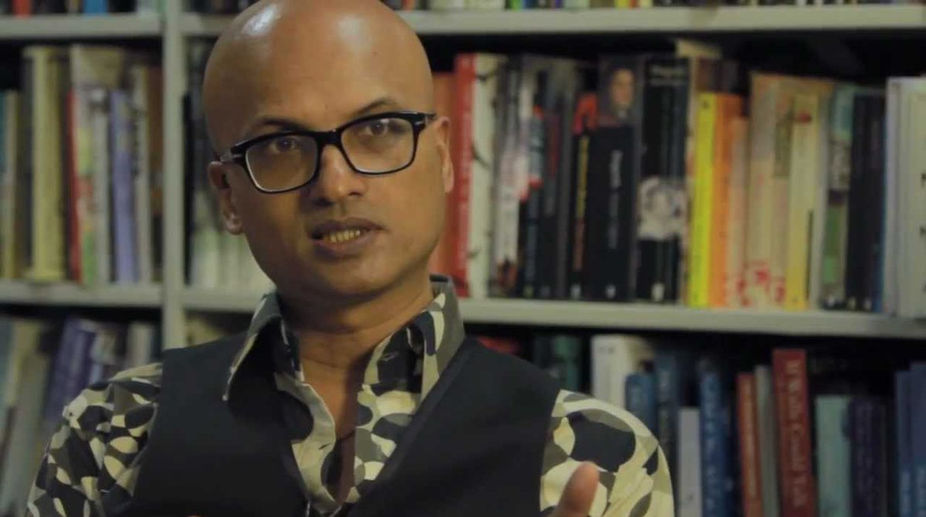Ayushmann Khurrana’s poem on India’s T20 WC victory goes viral; crosses 20 million views
Bollywood actor Ayushmann Khurrana has long mesmerised his audience with his beautiful singing and excellent acting. He also brings different…

Jeet Thayil (Photo: Twitter)
It has barely been a month since acclaimed poet Jeet Thayil’s “The Book of Chocolate Saints” hit the stands, but even in this short period, the novel has made a mark in literary circles.
Aleph publisher David Davidar was seen recommending the book to several Western authors at private parties of the just-concluded Dhaka Literature Festival. Instagram and other social media platforms are full of pictures of the book, often with a reader in frame, floating in their feeds. The publisher has billed it as the most awaited literary novel of the year and by its track-record so far, one cannot but agree.
Advertisement
In this novel, the Man Booker Prize-shortlisted author paints a hallucinatory portrait of an ambiguous soul: A self-destructive figure, a charismatic contrarian, and a tortured, damned artist battling with his conflicting instincts. Vividly set in both Delhi and Manhattan, “The Book of Chocolate Saints” explores our deepest urges in a novel that is sexy, dangerous, and entirely uncompromising.
Advertisement
It is a sheer pleasure to read fiction works by a poet because poets break the staid rules, they experiment and play with words. Thayil mesmerises his readers with the way he uses his poetic tools to structure the many lines of his novel.
Below are nine brilliant quotes from the book, explained in Thayil’s own words:
“Praise the broken world for it will vanish in a day and in a day be replaced by nothing.”
Self-explanatory. Get your praise in while the world still works; it may not be around much longer.
“In my experience it’s always the brightest that you have to watch. They cause the most trouble.”
The problem with intelligence is that it comes with unpredictable riders, including a tendency towards insurrection, interrogation, and self-destruction.
“In other words they were the kind of English poems that the English no longer wrote.”
In the mid-twentieth century, English poets stopped writing the kind of poems associated with a Romantic idea of English poetry. Indian poets continued to do so.
“The body is a cell and the soul a hermit who lives therein.”
We are trapped in a prison of skin, hair, and cranial geography.
“I remember the old days better, when we were young and the world was beautiful.”
Youth is wasted on the young.
“Words are cheap when you are talking to the press.”
Case in point: Me, now, talking to you.
“But what books they were! You will not see the like again.”
Once, Bardic utterance was the model for poetic speech. E.g. Homer, John Clare, Blake, Wordsworth, Whitman, Rimbaud, Ginsberg, Emily Dickinson, to name but a few. This is no longer the case. The reference here is to Newton Xavier’s first two books of poems, which fall firmly in the Bardic and prophetic mode.
“Everybody wants to know about writer’s block and how terrible it is. They love the idea of the tortured artist. Nobody talks about how super it is. How much like a paid vacation. You are giving yourself permission to not work.”
Adding to this would be like gilding the poppy. But here goes: Writer’s block is nothing more than the psyche repairing or recharging itself. Telling yourself you have writer’s block is a way of giving yourself a holiday.
“The only poem that matters is the poem that picks up a gun.”
In 2017 in India, literature seems irrelevant. What difference can a poem make in the time of hate, when the criminals are in government and the lunatics are in charge of the asylum?
Advertisement